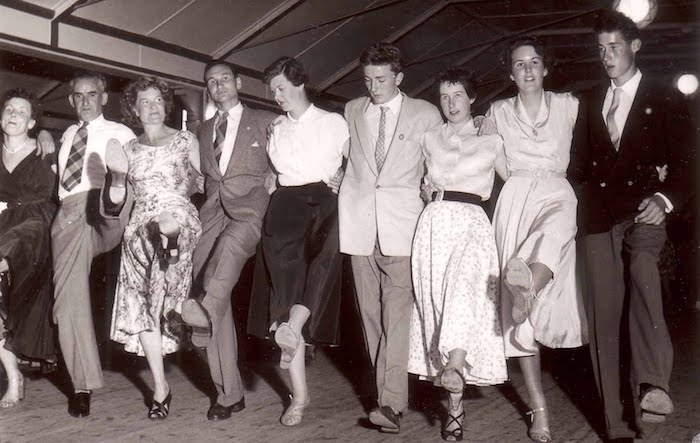Although it’s less than ideal, video meetings do, at least, allow us to record and disseminate get-togethers.
Here’s a link (Password: 6E$+34Y0) to yesterday’s biannual IPHA whole group meeting.
The 2nd half of the meeting is devoted to a plan to develop a new History101 course, and we’re looking for ideas for what people think are the pivotal movements that have shaped physiotherapy history.
If you have any suggestions, we would love to hear from you.

Posted by Dave Nicholls
Dave Nicholls is a Professor of Critical Physiotherapy in the School of Clinical Sciences at AUT University in Auckland, New Zealand. He is a physiotherapist, lecturer, researcher and writer, with a passion for critical thinking in and around the physical therapies. David is the founder of the Critical Physiotherapy Network, an organisation that promotes the use of cultural studies, education, history, philosophy, sociology, and a range of other disciplines in the study of the profession’s past, present and future. He is also co-founder and chair of the International Physiotherapy History Association Executive, and founding Executive member of the Environmental Physiotherapy Association. David’s own research work focuses on the philosophy, sociology, and critical history of physiotherapy, and considers how physiotherapy might need to adapt to the changing economy of health care in the 21st century. He has published numerous peer-reviewed articles and book chapters, many as first author. His first book – The End of Physiotherapy (Routledge, 2017) – was the first book-length critical history of the profession. A second sole-authored book – Physiotherapy Otherwise – was published in early 2022 as a free pdf/eBook (available from https://ojs.aut.ac.nz/tuwhera-open-monographs/catalog/book/8). He was co-editor on the first collection of critical physiotherapy writings – Manipulating Practices (Cappelen Damm, 2018) – and was the lead editor for the follow-up – Mobilising Knowledge (Routledge, 2020). He is also very active on social media, writing weekly on contemporary critical physiotherapy issues (criticalphysio.substack.com). He has taught in physiotherapy programmes in the UK and New Zealand for over 30 years and has presented his work around the world.


Hi David , I just watched your recent zoom meeting, a few comments.
There is plenty of information regarding the 50’s polio epidemic including prevention and physiotherapy in the newspaper archives. Trove NLA for Australia, British Newspaper Archives and Irishnewsarchives, all very interesting.
You are correct about the Australian’s involvement in rescinding the “referral ethic” and the battles we fought with recalcitrant associations in the WCPT, See “Path to Professionalism” History of the APA.
We wore masks when treating patients in positive pressure respirators so as not to infect them. (Fairfield Infectious Disease Hospital Vic. Australia 1965)
In 1970 when we requested that the Uni of Toronto admit male Physiotherapy students we were informed that that was impossible as there were no male toilets in the building in fact there were no male Canadian graduates until 1973 I believe.
In 1971 we were involved in establishing the Canadian Sports Medicine Federation as a multidisciplinary body, at the inaugural meeting at the Grey Cup in Ottawa we were refused a vote because we were not doctors ! There have been changes and there needed to be and there are many more stories after some 50 years of practice.
Personally the biggies for me since the WCPT Conference in Melbourne in 1966 have been, non referral practice, accreditation of private practices, the increase in post graduate education and research by physiotherapists, adopting the concept of evidence based practice and the incredible amount of work that has been done by so many to raise the standard of professionalism and the credibility of the profession in the health care system of so many countries.
Keep up the good work
Kindest regards
Rod Farr